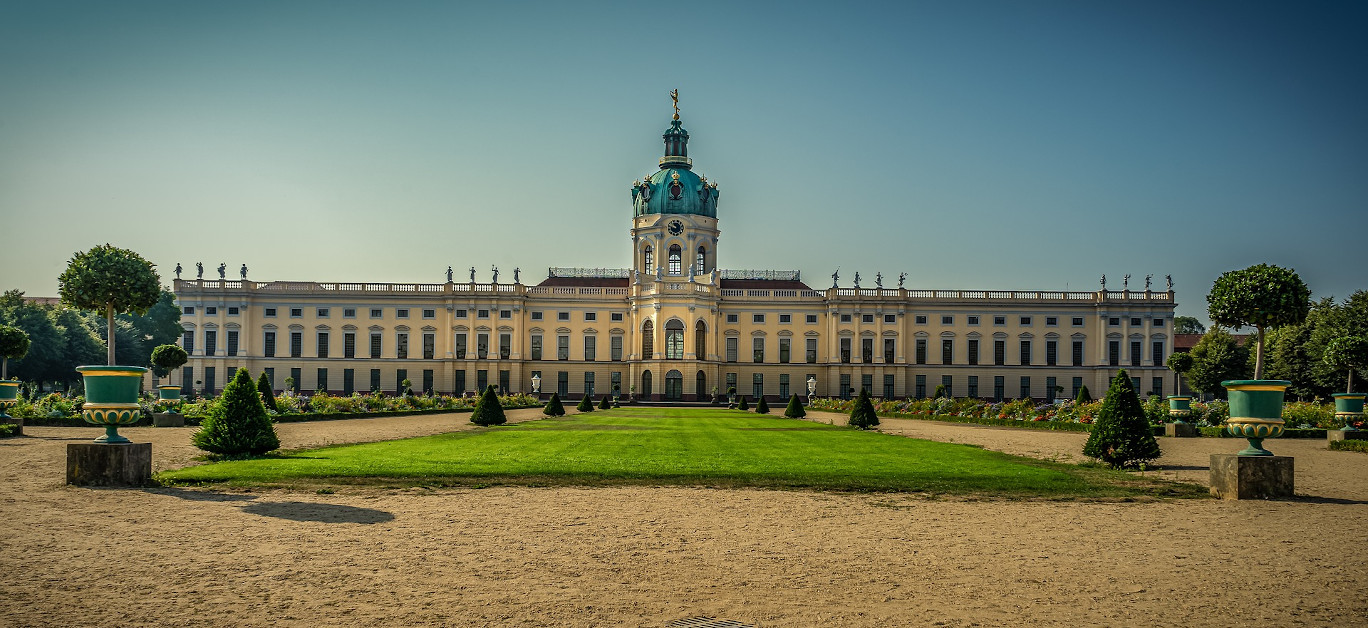Like a lot of European capitals, Berlin is a heady mix of history and culture, but one that has overcome more than most to endure and become one of the most vibrant and fascinating cities to explore.
Visitors can experience all the delights of a modern city with luxury designer shopping, fine dining and a clean, efficient transport system. Combining this with a unique history, a plethora of museums and art galleries and family friendly attractions makes it a must-see destination.
History
Political upheaval in the 20th century affected much of Europe, but Berlin bore the brunt more than most. The aftermath of WW1 included much social unrest and when Adolf Hitler was elected as Chancellor in 1933, the Nazi party introduced radical changes that would eventually lead Germany to another conflict.
Allied bombing raids during WW2 and the final battle for the city between the defending troops and Soviet invaders laid waste to much of central Berlin. After peace was declared, the USA, Britain, France and the Soviet Union split Berlin into four sectors to be managed by each country.
However, this outpost of combined rule deep in the Soviet sector of divided Germany soon ran into problems due to fragile relations between the occupiers and the Cold War began in earnest. The Berlin wall was erected in 1961 and remained until 1989 when, due to the imminent collapse of the Soviet Union, it was torn down and the reunification of Germany could finally go ahead the following year.
After 45 years of occupation and reinstated as the capital of Germany, Berlin could now move forward, and its wealth of diverse attractions has led it to become one of the most visited cities in Europe. This was my third visit and, in six days, I still only scratched the surface.
What to see and do
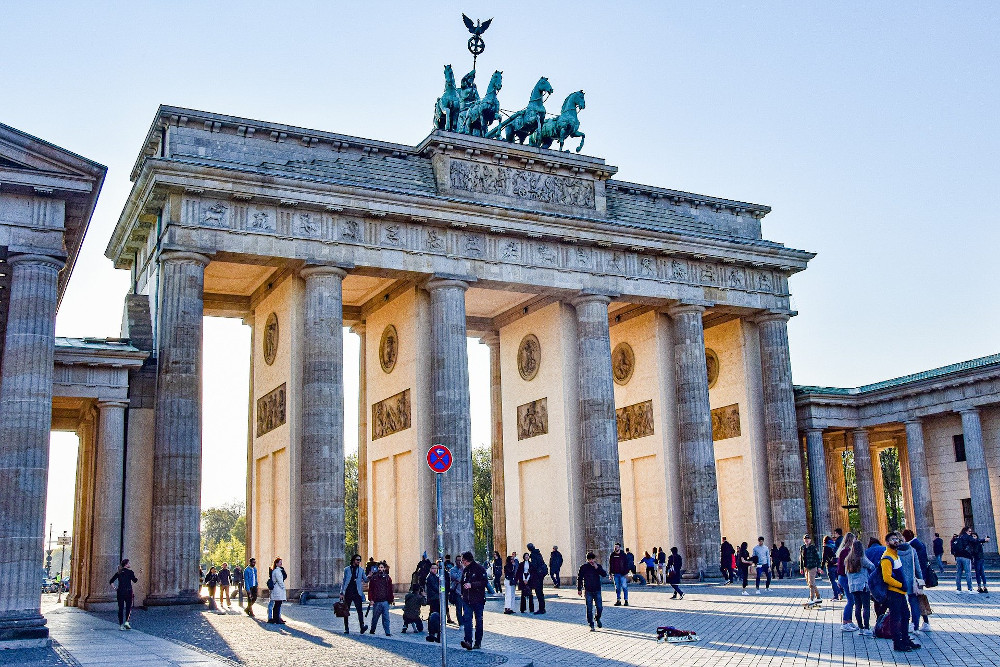
The iconic symbol of Berlin has to be the 18th century Brandenburg Gate, which, along with the infamous wall, formed part of the border between east and west. Most attractions are walkable from here and I found it a great starting point from which to explore.
First, if you head west you will soon come to the imposing Reichstag, seat of the German parliament. Opened in 1894, it was severely damaged by fire in 1933 and it was not until reunification and a major renovation that it was again used for its original purpose.
A visit to the Reichstag includes a guided tour, entry to the large viewing terrace at the top of the building and the glass dome. All visits must be arranged beforehand, you can’t just tip up as I did and expect to get in!
The nearby Tiergarten is Berlin’s largest inner city park and a stroll along the flower lined avenues or a picnic by one of the small lakes makes a peaceful respite from the bustling city.
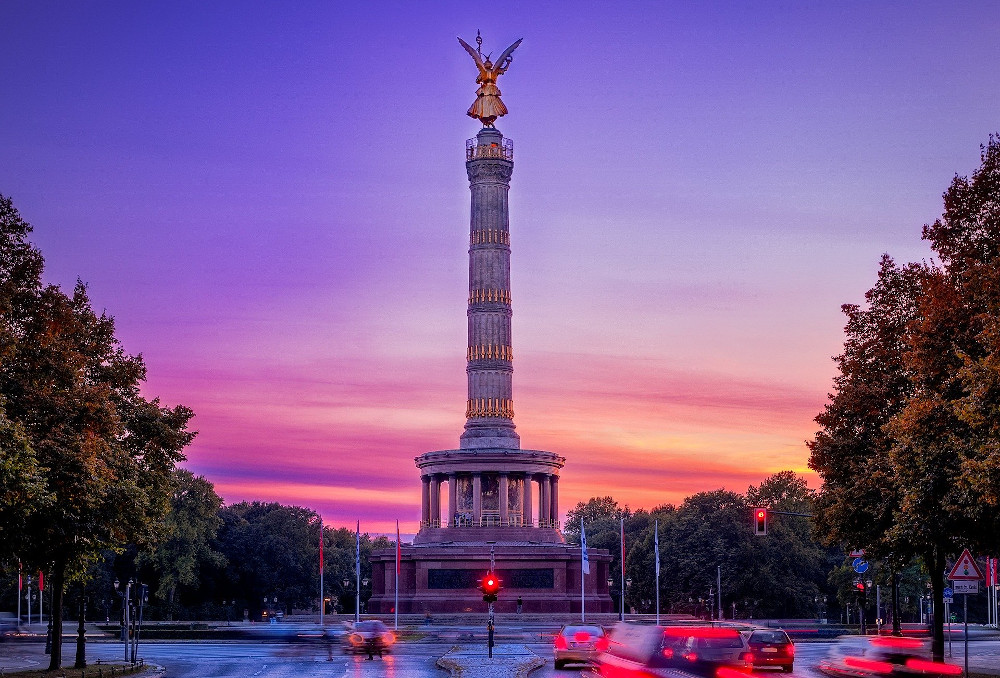
Historical reminders are never far away and the Soviet war memorial commemorates the Red Army soldiers who died in the battle for Berlin in 1945 whilst the 19th century victory column with its bronze sculpture of a winged Roman goddess sits rather strangely in the middle of a roundabout.
Originally, it stood in front of the Reichstag but was relocated here by Nazi architect Albert Speer in 1938 as part of an intended plan to remodel the area. Popular with tourists, the observation deck is reached via 270 steps of a spiral staircase.
At the south west corner of the park is the Berlin Zoo, which opened in 1844 and is believed to hold the largest collection of species in the world, with over 20,000 animals. It is extremely well laid out with full accessibility for the less mobile.
For cuteness overload, the twin baby pandas Pit and Paule were hard to beat, but the pygmy hippo swimming up to small children and showing off came a close second. I sat and watched the giraffes eating breakfast and loved the polar wolves howling and seeing the African painted dogs come out en masse to see what all the fuss was about!
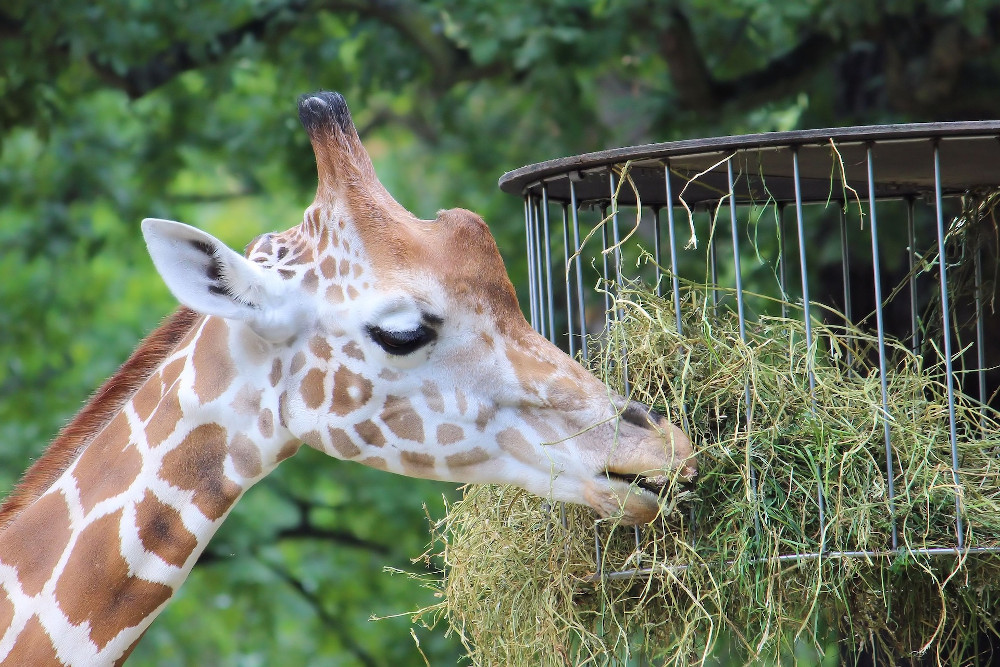
A short walk from the zoo is one of the most famous of all European shopping districts, The Kurfurstendamm (Ku’damm). Savvy Berlin fashionistas head here for their upmarket retail therapy and the busy street is lined with restaurants and cafes for that all-important lunch break between shopping.
High end boutiques include Armani, Chanel and Yves St Laurent, Hugo Boss and celebrated German designer Patrick Hellmann, whose collections include men, women’s and children’s designs as well as signature home pieces.
Back at Brandenburg Gate, head east and you find yourself on Unter den Linden, a wide boulevard which stretches for 1.5km and has some of the most impressive 18th century buildings that I have seen on one street. These include St Hedwig’s Cathedral, Humboldt University and the State Opera House. Not is all as it seems as many were war damaged and rebuilt, but this has been done superbly.
Cross over the Palace Bridge on the river Spree and you find yourself on Museum Island, which houses five excellent museums and is listed by UNESCO as a world heritage site. Highlights include classical antiquities, Byzantine art and Egyptian and prehistoric collections.
For those interested in the Cold War period, The Stasi museum is located on the former site of the Ministry for State Security of the German Democratic Republic. In 1990 demonstrators took possession of the building and there are three floors of exhibition area including the preserved offices.
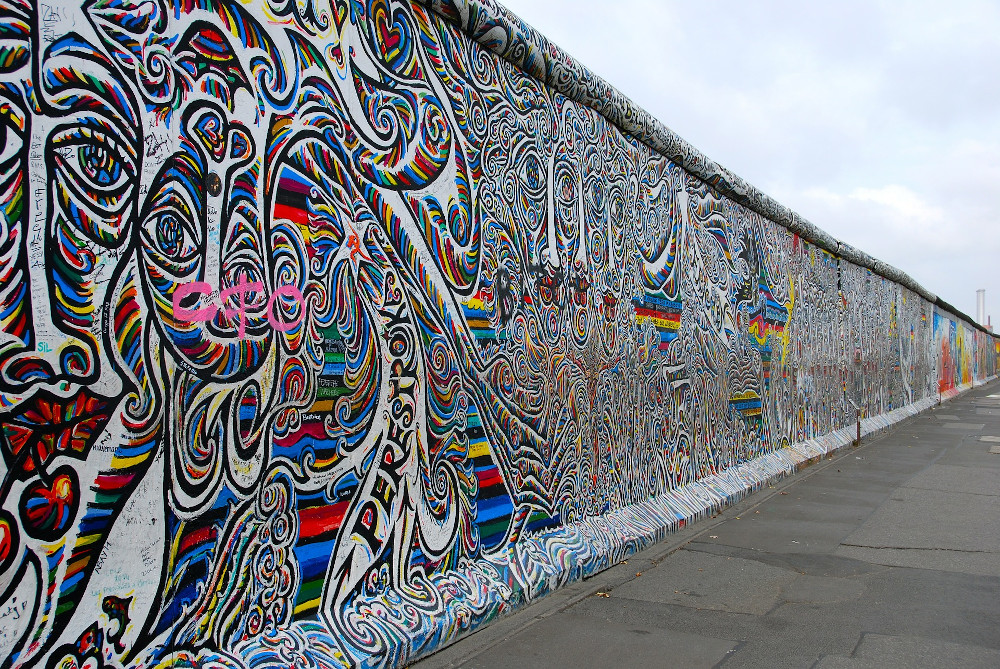
Head back west to the old border to see Checkpoint Charlie, the best-known crossing between east and west, which has been preserved with a reconstruction of the guardhouse. The nearby Haus am Checkpoint Charlie is an excellent museum with several displays devoted to the most daring escape attempts, some successful, some tragically not.
Located in a WW2 bunker near the bombed out Anhalter station, The Berlin Story Museum is an excellent two parter with the main exhibition detailing the history of Berlin combined with a unique “Hitler: How did it happen?” exhibition.
The latter takes visitors on a vivid journey using displays, images and artefacts. This was a thorough and detailed look at not only the Nazi years but the social conditions which led to Hitler’s rise to power, his policies and their consequences and the devastation caused by WW2.
A short walk takes you to the Topography of Terror, a modern affair built on the site of the Gestapo and SS headquarters. See the bombed out remains of the prison cells and learn about the history of the SS and Gestapo and how, under the Nazi regime, they instigated a reign of terror throughout Europe.
If you prefer your history a little lighter and like a wander around historic houses and gardens, then Charlottenburg Palace is a good choice. This former Royal residence ( see main picture ) is the largest palace in Berlin and visitors can enjoy a tour of the staterooms, collections of fine porcelain and the Prussian crown jewels.
Where to stay
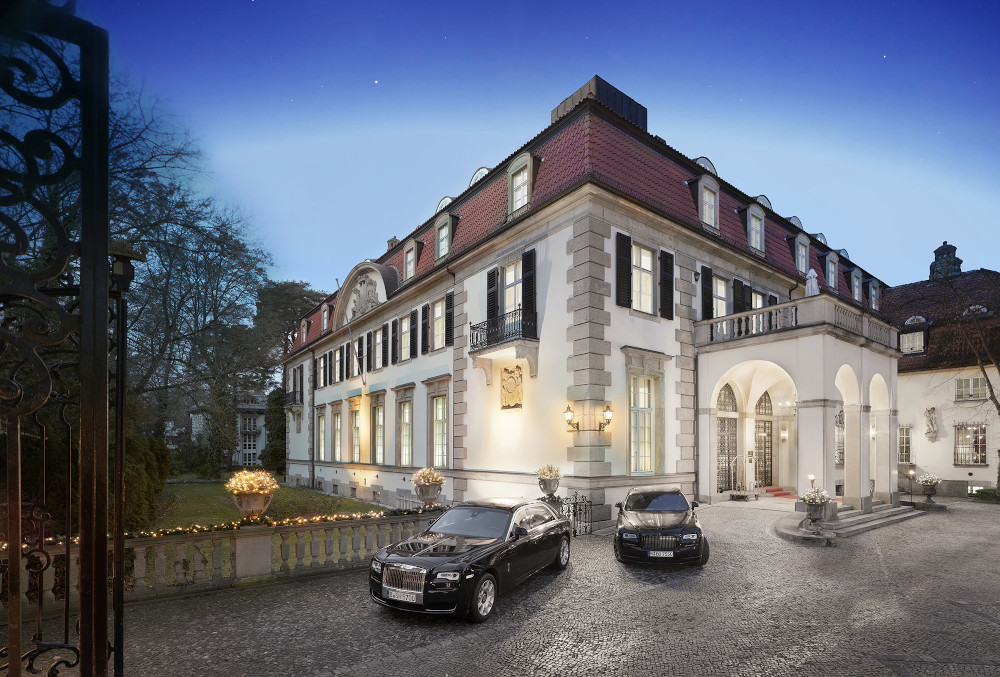
The choice of hotels in Berlin can be overwhelming and I stayed in two of the best, both luxury, five-star hotels, which I would recommend for unforgettable stays.
First, I stayed at the Schlosshotel Berlin by Patrick Hellmann, an early 20th century chateau in the leafy district of Grunewald. This charming hotel has been beautifully refurbished by owner Patrick Hellmann and is now a chic fashion hotel showcasing his stunning designs. Read my review here.
I then moved further into the city and stayed at the Hotel Zoo Berlin on Ku’damm, another lovely old building that has been brought into the present with a sense of Hollywood style by US designer Dana Lee. Read my review here.
Where to eat

Fine dining abounds in Berlin and you will find every type of global cuisine is available at first class restaurants. My top recommendation would be GRACE restaurant at the Hotel Zoo Berlin. A stylish and trendy space popular with celebrities, it offers an innovative menu featuring delicious dishes with a Latin American and Asian twist.
At 368 metres high, the Berlin TV Tower is the tallest building in Germany with over 1 million visitors per year. The revolving restaurant Sphere is a great place for a spot of lunch while taking in the amazing city views. The menu is classic German fare with a quirky historical edge.
Getting around
The efficient and regular transport system includes overground S Bahn and underground U Bahn trains. They serve the city and surrounding areas and are a quick and easy way to see the sights. Daily or multi day tickets are available at the airport.
These also cover the bus system, which has clean, modern buses with handy onboard digital displays so you can see where you are and where to get off. Just remember that if you are using buses then they stop on the other side of the street.
Nutshell
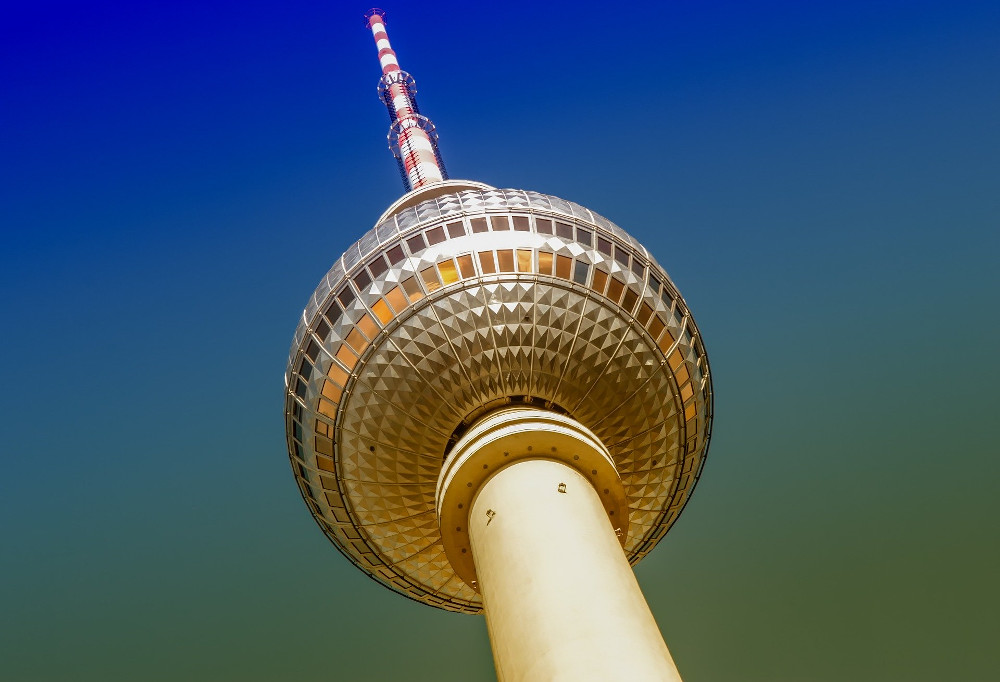
Berlin is one of my top cities to visit as, along with old favourites, there is always something new to look forward to. Constantly changing to keep up with new ideas but also respecting its unique history and culture.
From families to history buffs, nature lovers to luxury shoppers, Berlin has something for everyone to enjoy and explore, and I am already looking forward to my next visit to this fascinating city.
Factbox
Getting there
Several airlines fly to Berlin and I flew the flag with British Airways, going from Heathrow to Tegel airport. Flights take around 1 hour 50 minutes.
More information
Two excellent sites that I would recommend are visitberlin which gives up to date details of attractions and things to do and berlin.de, Berlin’s official website which offers tips on everything from getting around to where to stay.












